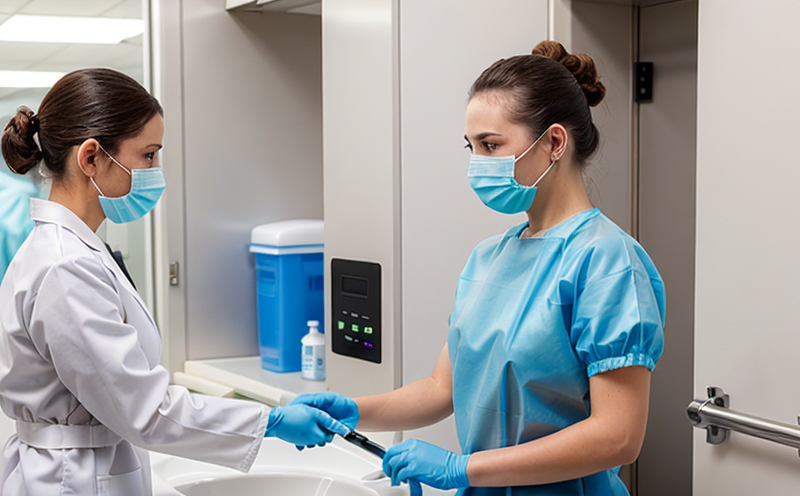Testing of fungal resistance in protective tent fabrics
In today’s world, where hygiene and safety are paramount, particularly in outdoor environments such as camping and military operations, the demand for protective tent fabrics with effective fungal resistance is increasing. Fungi can pose significant health risks by causing skin infections, respiratory problems, and other issues if left unaddressed.
Our laboratory specializes in providing comprehensive testing services to ensure that textile products meet the highest standards of hygiene and protection against microbial contamination. By leveraging advanced analytical techniques and industry-leading expertise, we offer clients reliable data on the fungal resistance properties of their fabrics.
The process begins with careful selection of appropriate test specimens which represent typical usage conditions for tents under various environmental stresses like humidity and temperature fluctuations. Our lab uses standardized protocols based on internationally recognized standards such as ISO 20743:2015 (Microbiological quality of air – Fungal contamination in buildings).
Once the samples are prepared according to specified procedures, they undergo exposure testing where controlled amounts of common fungal species like Aspergillus niger and Candida albicans are introduced into chambers designed specifically for this purpose. The performance is then evaluated by measuring changes in colony-forming units (CFUs).
Our team also conducts visual inspections to assess any visible signs of mold growth which could indicate compromised integrity of the fabric’s protective barrier against pathogens. Additionally, we perform chemical analysis to determine whether there has been degradation or leaching of antimicrobial agents from treated areas.
The results are compiled into detailed reports that include both quantitative measurements (such as CFU levels before and after exposure) along with qualitative observations regarding appearance changes due to fungal activity. These insights help manufacturers make informed decisions about product improvement or formulation adjustments aimed at enhancing long-term performance.
By adhering strictly to rigorous quality control measures throughout our testing process, we ensure accurate representation of each sample’s actual behavior when exposed to real-world conditions involving fungi. This enables companies to confidently market their products as safe and effective solutions for maintaining cleanliness in demanding settings such as emergency shelters or recreational areas.
Applied Standards
| Standard Number | Description |
|---|---|
| ISO 20743:2015 | Microbiological quality of air – Fungal contamination in buildings |
| ASTM E2698-16a | Standard practice for conducting biostatic efficacy tests on antimicrobial products |
Environmental and Sustainability Contributions
- Reduces waste associated with discarded tents by ensuring prolonged durability through effective treatment.
- Promotes healthier living spaces by eliminating potential sources of airborne fungal spores.
- Saves resources by reducing the need for frequent replacements due to microbial damage.
Competitive Advantage and Market Impact
Our service provides textile manufacturers with a competitive edge in several ways:
Enhanced Reputation: By demonstrating compliance with stringent hygiene standards, companies can build trust among consumers who value health and safety above all else.
Innovation Leadership: Our expertise allows firms to stay ahead of trends by incorporating cutting-edge antimicrobial technologies into their products before competitors do.
Cost Efficiency: Early detection of vulnerabilities allows for targeted improvements rather than costly recalls later down the line.





